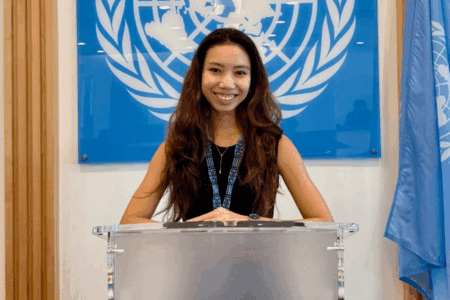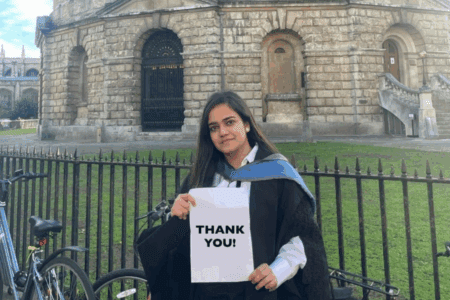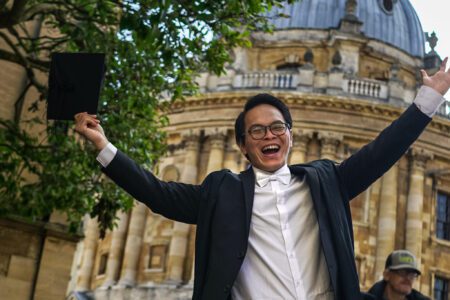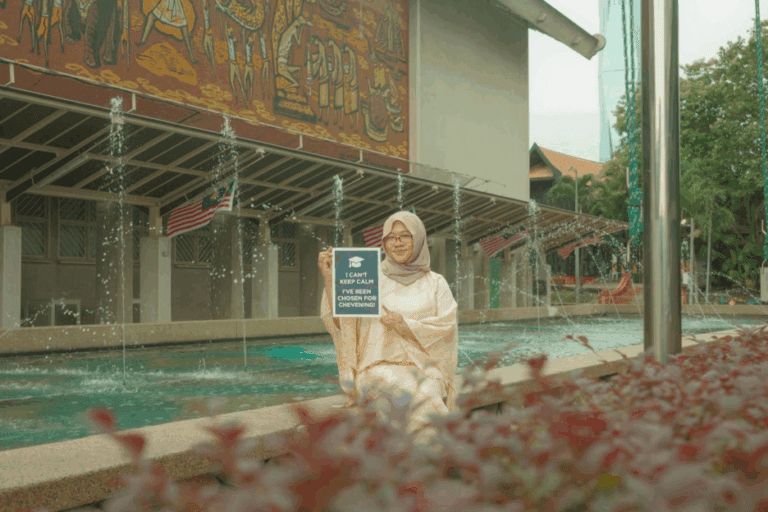
An only child who was raised primarily by her mum, Azida Azmi never thought she would pursue a master’s degree.
Now, she has one from the prestigious Ivy League school Columbia University and is pursuing her second master’s as a Chevening scholar at University of Oxford.
This is the Malaysian’s journey across the globe, and through academia.
A self-starter who choose to pursue negotiation and conflict resolution
Having had average grades in high school, it was only after she completed her Sijil Tinggi Persekolahan Malaysia (a national pre-university qualification in Malaysia) that Azmi began thinking in earnest about what she wanted to do.
That’s when she realised that she was passionate about culture as well as… talking?
These were both things that permeated her upbringing. Azmi describes herself as someone who’s always been quite good at talking. In her own words, she was the kid that teachers would keep moving to different seats in an attempt to quieten her down. And yet, the chatterbox persisted.
Azmi also grew up multicultural, raised by her mum who migrated to Malaysia from Indonesia. Moreover, she was enrolled in a Chinese primary school.
Combining her interests and background, she decided to pursue English for Intercultural Communication at Universiti Teknologi MARA in Malaysia for her bachelor’s.
During her undergraduate degree, Azmi met a number of people who saw potential in her and would encourage her to do a master’s degree. It was a surprising proposition, as a master’s wasn’t something Azmi had considered at that time.
“I come from a background where no one in my family has ever accessed university,” she says. “My mum didn’t even go to school, so she didn’t have any formal education.”
But as she became exposed to different higher education pathways, Azmi grew more interested in studying education as a whole, especially regarding its inequalities. Wanting to make education in Malaysia more accessible to those with lesser opportunities and resources, she decided to delve into negotiation and conflict resolution.
“Do we think that conflict only happens when there is someone punching the other person, only when violence is visible? But what about invisible violence? What is that like?” she points out.
Without much access or resources on study abroad applications, Azmi took matters into her own hands and reached out to nearly 200 people on LinkedIn from around the world. She sought out anyone who might just have relevant information.
“The reason why I reached out to so many people is because I really just wanted support, because I couldn’t get that from my own circle, like family, because none of us had that exposure,” she shares. “So, I had to seek it elsewhere.”
Interestingly, many of the people she reached out to had studied in Columbia and Oxford.
She would ask them how their experiences studying was like, and if they could share examples of their personal statements. From there, she polished her own application and made it into Columbia University.
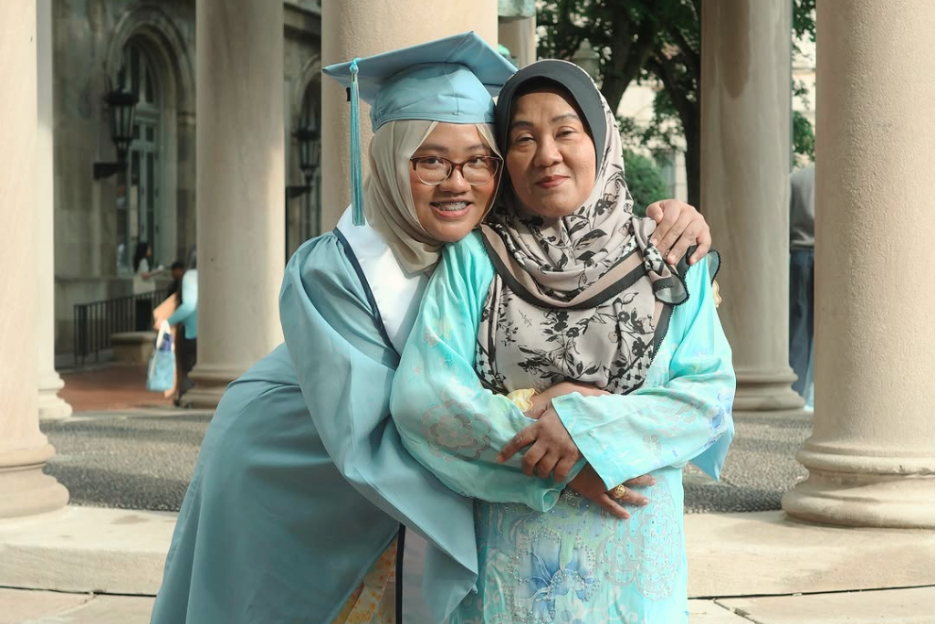
Azmi has a close relationship with her mother, who originally hailed from Indonesia. Source: Azida Azmi
On a quest to understand human beings better
At Columbia, Azmi’s thesis questioned whether the meritocracy in education is even fair. While it seems like people are competing on “the same level,” Azmi felt that this “meritocracy” ignored the myriad obstacles and challenges that many underprivileged students must overcome before they can even enter higher education.
“But just seeing things from a top-bottom approach is not going to be able to produce solutions that are actually sustainable,” she says. “That’s when I met with my professor who was teaching the same programme. He had a sociology background, and I was asking him, ‘How do I really understand people?’”
Azmi believed she had to deeply comprehend human beings and the culture and values they bring with them to really solve conflicts. Given that, her professor suggested studying anthropology.
After doing her own research, Azmi agreed with the recommendation, which led her to seek a second master’s degree.
Some people may feel like the natural progression after pursuing one master’s is to do a PhD. But for the Malaysian student, she wanted to broaden her perspectives with an interdisciplinary approach, rather than specialise in just one thing at this stage.
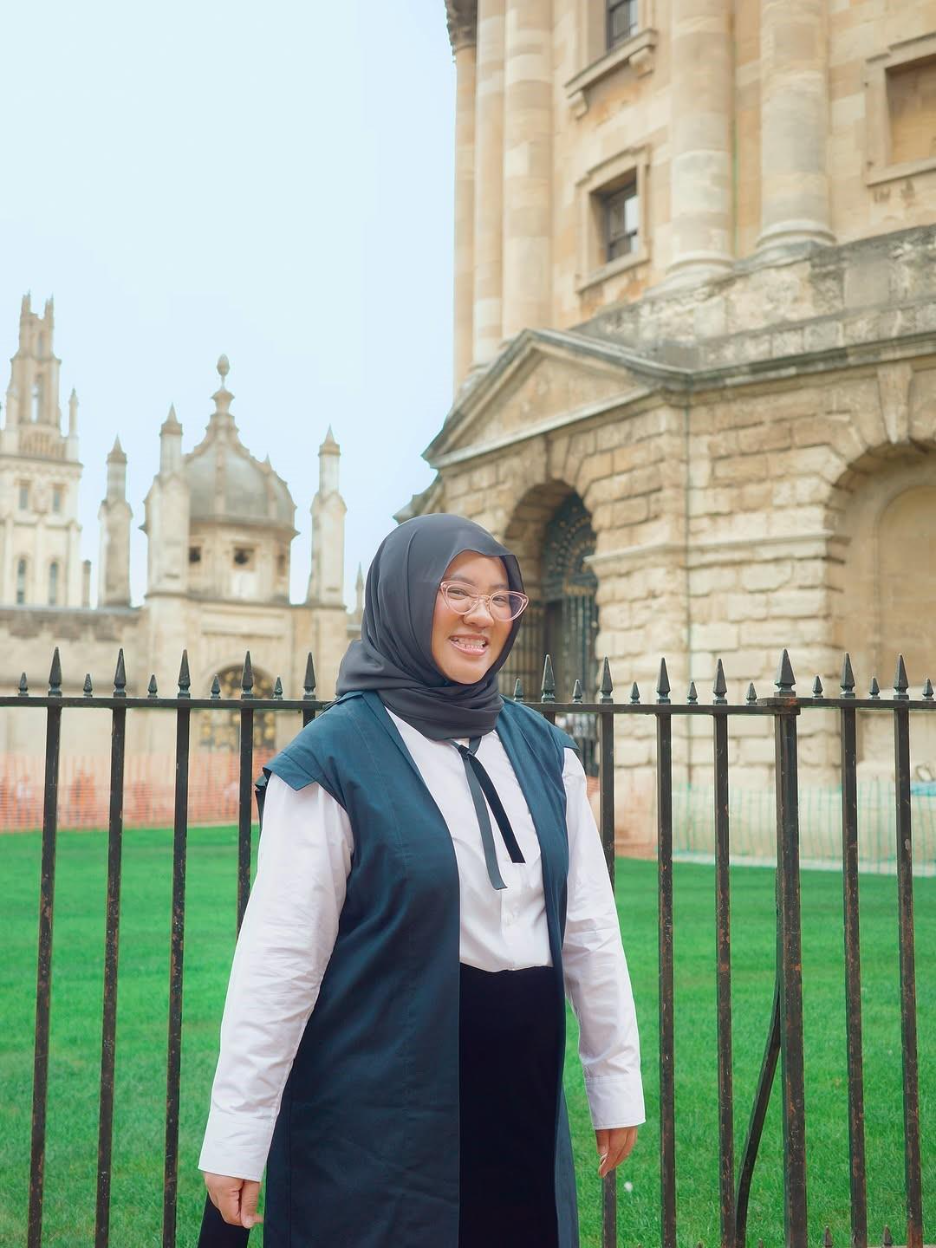
Azmi shares updates of her journey and insights on her social media accounts. Source: Azida Azmi
How she “accidentally” became a Chevening scholar
To fund her Master’s Azmi decided to go through the Chevening Scholarship, an international scholarship that enables foreign students to study at universities in the United Kingdom.
More than the financial support they provided, it was the network that they offered that really appealed to Azmi.
“I feel like it’s the network that helps you build your credibility and gives you the support and direction that you need, especially when you come from a community where none of that ever existed in your entire life,” she says. “Like everything that I have now, I relied a lot on community.”
Those around her also shared that the Chevening Scholarship is often given to leaders who wish to contribute to their community. And Azmi believes that if not by learning, she could also model after her fellow scholars and peers through this programme.
However, she actually considered her application to Chevening and Oxford as a trial this time around. As she puts it, it was not on her bingo list this year.
“I just wanted to see how far I can go and what I can learn from the application process,” Azmi says.
Because of that mindset, she didn’t reach out to that many people this time around. Still, she couldn’t help but have that edge of hopefulness, especially since she did spend some RM300 (around US$72.30 at the time of writing).
While Azmi might seem like a confident student to some, she also has her moments of self-doubt. And that feeling was especially evident when she was applying for the Chevening Scholarship.
“When I was doing my application there were so many moments where I wanted to quit,” she admits. “Even when I was submitting the first stage of the application, which was the online written application, I almost did not submit because I thought it would be so embarrassing if I tried this year and did not get it.”
However, Azmi realized that most people who are successful are the ones who would fail 10 times but succeed on the 11th attempt. They are the ones who continually get back up until they are satisfied.
“I have a fear of rejection. And I always feel like I’m out of place and I don’t belong somewhere,” she says. “But if there’s one thing that my mom has taught me since I was little is that if you constantly feel like there’s no seat for you at the table, it just means that you need to keep standing until you are able to create a seat for yourself.”








